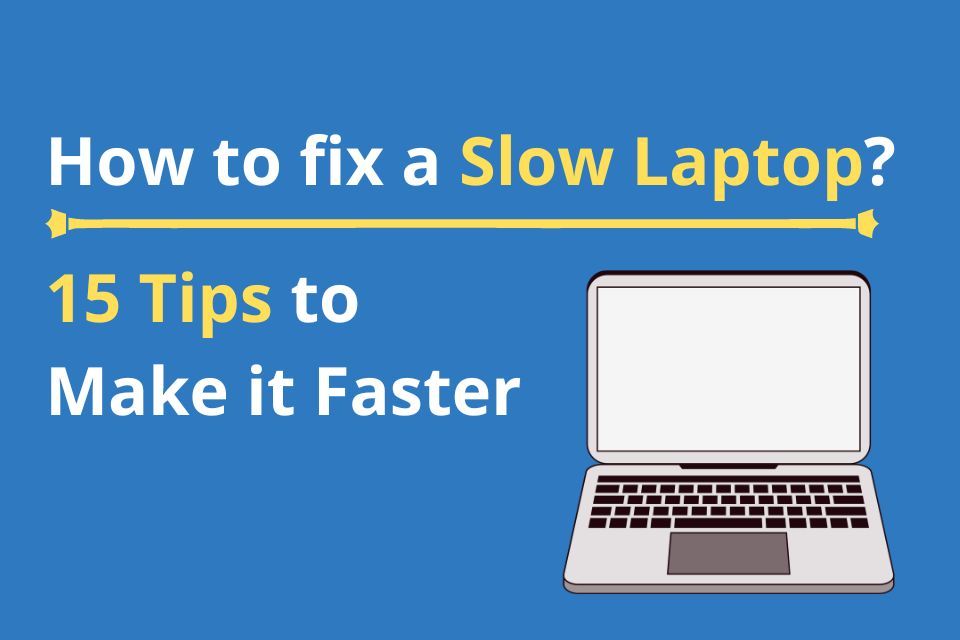

In today’s fast-paced digital world, a slow laptop or PC can be a major frustration. Whether you’re a student, professional, or casual user, having a sluggish device can significantly impact your productivity and overall experience. Let’s explore this topic in more detail with Papa’s Freezeria below. This popular time-management game requires a smooth-running system to fully enjoy its ice cream-making challenges. By implementing the tips and tricks we’ll discuss, you’ll not only improve your general computing experience but also ensure games like Papa’s Freezeria run seamlessly on your device.
Before diving into solutions, it’s crucial to understand why your laptop or PC might be running slow. Several factors can contribute to decreased performance over time. One common culprit is the accumulation of unnecessary files and programs. As you use your computer, temporary files, downloads, and unused applications can clutter your hard drive, leaving less space for essential processes. Another factor is outdated hardware. As technology advances, newer software and operating systems require more resources, which older hardware may struggle to provide. Additionally, malware and viruses can significantly impact your computer’s speed, consuming resources and potentially compromising your system’s integrity. Identifying these issues is the first step towards optimizing your device’s performance.
Software-related issues can also play a significant role in slowing down your computer. Running too many programs simultaneously can overburden your system’s resources, leading to sluggish performance. Background processes, especially those that start automatically when you boot up your computer, can silently consume memory and processing power. Outdated drivers can cause conflicts and inefficiencies, while fragmented hard drives can increase the time it takes for your computer to access and retrieve data. Understanding these potential bottlenecks is crucial for implementing effective solutions to speed up your slow laptop or PC.
Read more: iOS vs Android: Which One Is Right for You in 2025?
Now that we’ve identified some common causes of slow performance, let’s explore practical steps to revitalize your laptop or PC. The first and perhaps most crucial step is to perform a thorough cleanup of your system. Start by uninstalling programs you no longer use or need. These applications not only take up valuable hard drive space but may also run background processes that consume system resources. Next, clear out your temporary files and empty the Recycle Bin. Windows has built-in tools like Disk Cleanup that can help automate this process, removing unnecessary files and potentially freeing up gigabytes of space.
Another essential step is to manage your startup programs. Many applications set themselves to launch automatically when your computer starts, which can significantly slow down the boot process and overall performance. To address this, use the Task Manager in Windows or System Preferences on a Mac to review and disable unnecessary startup items. Be cautious, however, and only disable programs you’re sure aren’t essential for your system’s operation. Updating your operating system and drivers is also crucial. These updates often include performance improvements and bug fixes that can help your computer run more efficiently. Enable automatic updates if possible, or make it a habit to check for updates regularly.
Optimizing your browser can also have a significant impact on your computer’s performance, especially if you spend a lot of time online. Start by clearing your browser’s cache and cookies regularly. This not only frees up space but can also resolve issues with websites loading slowly. Consider using ad-blocking extensions to reduce the load on your system when browsing ad-heavy websites. If you have multiple extensions installed, review them and remove any that you don’t use frequently. Each active extension consumes memory and can slow down your browsing experience. By implementing these steps, you’ll likely notice a considerable improvement in your computer’s speed and responsiveness.
For those looking to squeeze every ounce of performance out of their laptop or PC, there are more advanced techniques to consider. One powerful method is to upgrade your hardware. Adding more RAM can significantly boost your computer’s ability to handle multiple tasks simultaneously. If your computer still uses a traditional hard disk drive (HDD), upgrading to a solid-state drive (SSD) can dramatically improve boot times and overall system responsiveness. While these upgrades require some technical knowledge and an initial investment, the performance gains can be substantial and can extend the life of your computer by several years.
Another advanced technique is to optimize your computer’s power settings. While power-saving modes are great for conserving battery life on laptops, they can also throttle performance. Adjusting your power plan to favor performance over energy saving can unlock additional speed, especially useful when your device is plugged in. For Windows users, tweaking visual effects can also free up system resources. By disabling animations and transparencies, you can allocate more processing power to actual tasks rather than visual flourishes.
For the more technically inclined, overclocking your CPU or GPU can provide a significant performance boost, particularly for gaming or resource-intensive tasks. However, this should be approached with caution, as improper overclocking can lead to system instability or even hardware damage. Similarly, adjusting your computer’s virtual memory settings can help optimize performance, especially if you’re unable to add more physical RAM. These advanced techniques require a deeper understanding of your system’s capabilities and limitations, so it’s important to research thoroughly and proceed carefully to avoid potential issues.
Speeding up your laptop or PC isn’t just about immediate fixes; it’s also about maintaining that performance over time. Establishing good habits and regular maintenance routines is key to keeping your computer running smoothly. Set up a schedule for regular disk cleanups, virus scans, and system updates. Consider using built-in tools like Windows’ Disk Defragmenter (for HDDs) or Optimize Drives (for SSDs) to keep your storage running efficiently. Regularly review your installed programs and remove any that you no longer need or use. This not only frees up space but also reduces the number of programs that might be running in the background.
Be mindful of the software you install. Always download applications from reputable sources to avoid malware. When installing new programs, pay attention to the installation options and decline any additional software or toolbars you don’t need. These extras can often slow down your system and clutter your browser. Additionally, consider using cloud storage services to offload some of your files from your local drive. This can help maintain free space on your computer, which is crucial for optimal performance.
Lastly, don’t underestimate the importance of physical maintenance. Dust and debris can accumulate inside your computer, leading to overheating issues that can slow down your system or even cause hardware damage. Regularly clean the exterior of your laptop or PC, and if you’re comfortable, consider opening up desktop computers to clean out dust from internal components. For laptops, ensure that vents are clear and consider using a cooling pad to improve airflow. By combining these maintenance practices with the performance-boosting techniques discussed earlier, you can ensure that your computer remains fast and responsive for years to come.
Read more: 10 Tech Hacks That Will Instantly Improve Your Productivity
Speeding up a slow laptop or PC doesn’t have to be a daunting task. By understanding the common causes of sluggish performance and implementing a combination of basic and advanced optimization techniques, you can significantly improve your computer’s speed and efficiency. From simple steps like uninstalling unused programs and managing startup items to more advanced methods like hardware upgrades and power setting adjustments, there are solutions available for every level of technical expertise. Remember, the key to maintaining a fast computer lies not just in these one-time fixes but in developing good computing habits and performing regular maintenance.
As we’ve explored, games like Papa’s Freezeria and other resource-intensive applications benefit greatly from a well-optimized system. By following the advice outlined in this article, you’ll not only enhance your general computing experience but also ensure that your favorite games and applications run smoothly. Whether you’re a student, professional, or casual user, a faster computer means increased productivity, less frustration, and more enjoyment from your digital activities. Take the time to implement these strategies, and you’ll be rewarded with a laptop or PC that performs like new, ready to tackle whatever tasks you throw at it with speed and efficiency.